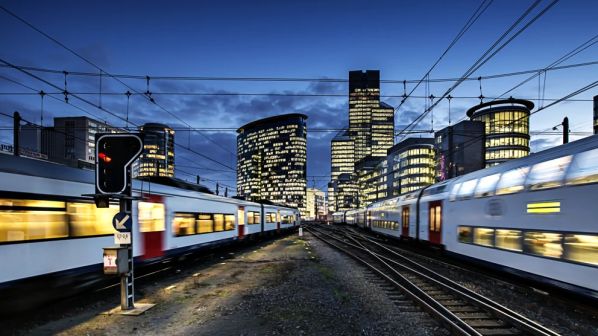The “Hello Belgium Railpass” will provide two free journeys a month, under the scheme announced in June by the federal minister for mobility and transport, Mr François Bellot, to boost tourism within the country.
Residents aged 12 and over have until September 30 to apply for the card online, which will be distributed to them through the post. Prior to travel, the card must be filled in with the trip details and presented as a ticket alongside photo ID. Passengers under the age of 12 can already travel free when accompanied by another passenger.
Journeys may be made after 09.00 during the week, and at any time during the weekend. The ticket includes all SNCB services across the complete Belgian network.
SNCB is launching the “Hello Belgium” campaign alongside the launch of the pass in order to promote more than 500 destinations around the country that can be reached by train in order to support the tourist, commercial, recreational and cultural sectors.
“In June, the presidents of the 10 parties supporting the government decided to offer free train rides to every inhabitant of this country,” Bellot says. “The aim of the measure is to encourage Belgians to take the train to discover or rediscover our beautiful country and all its facets or to make a journey of their choice. It is an excellent opportunity to try out the train in everyday life. The start date for using the Railpass has been postponed by the National Security Council from mid-August to October 5. We will of course closely monitor the epidemiological situation.”
The announcement of the pass initially received push-back from SNCB, which said it had not been consulted about the implications and cost of providing the free travel. SNCB CEO Ms Sophie Dutordoir said that increased traffic would undermine health precautions set up to combat coronavirus.
SNCB announced a revised scheme, which increased the number of journeys from 10 to 12 but introduced the restriction on the number of journeys that can be taken each month.
SNCB says the journeys must be spread out as much as possible in order to maintain passenger safety, and the company is developing an app that will provide information on train occupancy in real time using colour codes. The app is due to be introduced in mid-September. It is also compulsory for all passengers in Belgium over the age of 12 to wear face masks on trains and in stations.
Financial loss
The announcement of the rail pass scheme comes after SNCB announced an operating loss for the first half of 2020. Passenger numbers dropped to 9.7% of normal levels at the height of the pandemic, but this has since recovered to nearly 49% by the end of June, in line with other operators.
However, SNCB says it provided a near-normal level of service through the pandemic at the request of the government, resulting in costs remaining high.
Operating income dropped from €1.29bn in the first half of 2019 to €1.04bn in the first half of 2020, while operating costs dropped from €1.25bn to €1.19bn. This resulted in an operating loss of €152.3m compared with a profit of €44.3m year-on-year.
SNCB expects an operating loss of more than €300m at the end of this year. Economic debt increased to €2.47bn in the first half of the year compared with €2.38bn at the end of June 2019.
Future investment
SNCB says the crisis is putting pressure on financing of future investments, which it says are necessary now more than ever.
The financial outlook for 2020-2030 foresaw investments amounting to €8.26bn, 85% of which was covered by projected investment allocations while €800m would come from operating balances that cannot be expected in the coming years.
“In order to further develop public transport in a sustainable way, SNCB has urged the government to guarantee the necessary financing needs, both in the short term and in the longer term,” the company says.

